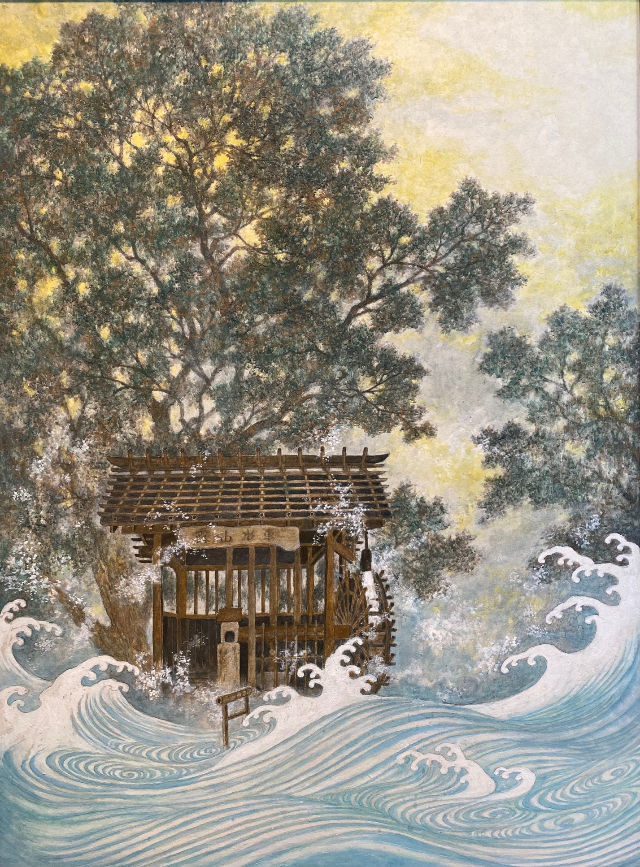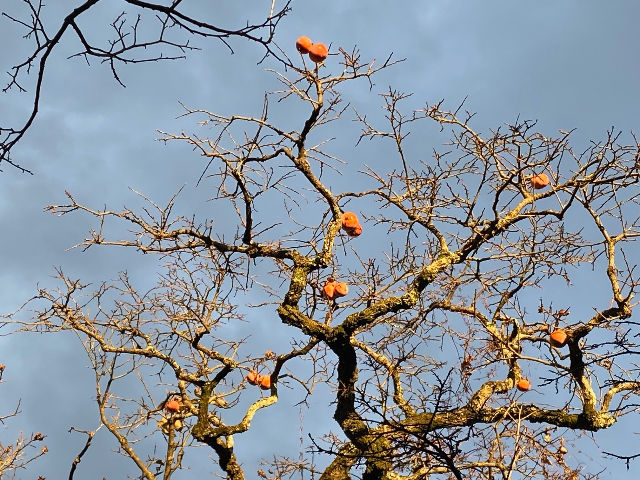THANKS, BUT NO THANKS
- Rebecca Otowa
- Aug 4, 2021
- 5 min read

Feelings always run high for me at the two big holiday seasons of the Japanese year, O-Bon (August) and O-Shogatsu (New Year). Perhaps it’s because things get so much more Japanese then than at ordinary times – lots of little rules and customs to observe, lots of comings and goings with neighbors and relatives. Because of these, I think everyone is a bit more nervous at those times, not only me, but Japanese people also.
This is certainly true of our new temple priest, who as well as being brand new where we are concerned (a mere 2 years here) is also a brand-new priest – he trained and became a priest after his semi-retirement from his other job, which was a traditional comic performer (rakugo). It’s actually kind of a good combination; he’s friendly, entertaining and open. I like him, and have felt I could say just about anything to him. Yesterday, in the temple cleanup preparatory to the O-Bon rituals, I discovered he had gone through beforehand and cleaned the temple graveyard (which is more of a collection of memorial tablets, actual remains being interred in another graveyard not far away), private as well as public areas, in the process getting rid of some plants that had been there for a long time.
I was disturbed by this. I believe cleaning a family grave is the responsibility of the family. It’s an opportunity to remember the dead, maybe to talk to them a little, and it’s quite a private thing, at least I have always thought so. And, strangely, the area around our family gravestone often yields flowers, which come up on their own (I have not seen this happen in any other grave plots). I’m always interested to see each year what flower will come up. This year, some small pink flowers, which I recognized as one of my mother-in-law’s favorites, had grown up there – only to be removed by the priest.
The other members of the parish, whose graves had also been cleaned (and who knows what had been changed or removed in the process), had only words of thanks and admiration for the priest when they saw the graveyard. None of them had my reaction, which was “Thanks but no thanks” – “I understand that you were trying to help, but it wasn’t really what I wanted.”
This illustrates an interesting social and psychological phenomenon known as arigata-meiwaku. The literal translation is something like “Welcome but troubling”. And the two words, arigatai (literally, “it doesn’t exist easily” i.e. something to be grateful for) and meiwaku (troublesome, bothersome, irritating) cannot even be mentioned together in polite society, as I learned when I asked Japanese people about this term. They acknowledged, somewhat ruefully, that it was a real word, but they didn’t want to talk about it. This exemplifies a side issue, which is that no matter how much of a problem something actually is, in public they always express the arigatai part, and don’t mention the meiwaku part unless they are in a safe or private situation. For a Westerner, it would be considered OK (depending on the situation) to say both things – I know why you did this, and I’m grateful, but please don’t do it again. I get the impression that most Japanese would rather die than admit they didn’t want something that is given or provided. This is probably the rationale behind the tradition of not opening gifts immediately – one doesn’t want to show any hint of disappointment or dismay when opening the gift, in case the giver’s feelings will be hurt – but it’s OK to vent these feelings later, in private, upon opening the gift.
It’s nice to imagine that people are being so delicate because they don’t want to hurt others’ feelings. And we want to acknowledge the intention behind the gift, which we like to consider benign. The Japanese even have a word for this, which can be used when they refuse something – Kimochi dake o itadakimasu (literally, “I’ll take the feeling only”, which is kind of a twist on the Western slogan, “It’s the thought that counts”). But gifts, and favors, often are not offered in a benign spirit – they may reflect a power or business relationship, not something that involves hurt feelings. I think that in ordinary cases, people don’t call each other on arigata-meiwaku because they don’t want to start that dreaded thing, a quarrel. They’d rather say thank you to something that they not only didn’t want, it destroyed something they held dear or caused trouble in other ways; but heaven forbid that the social boat be rocked by not thanking someone, because thanking is the polite thing to do.
In the case of the priest, he later came to my home and apologized (he had heard of my reaction from another parish member, who I now realize is a terrible tattletale). I had been intending to take this up privately with the priest in a day or two, anyway. I trusted him enough to understand. He is always saying that no one tells him anything; he wants them to, as he is new and doesn’t want to put anyone’s nose out of joint. Of course no one tells him anything! That would be meiwaku, and all the other parishioners want to be seen as accepting everything he does as arigatai. That earns them points as well, for being forbearing.
Japanese social relations, especially among older people and in the countryside, can be very complicated. How much lying, how much complicity is required for membership? Maybe it’s because I’m older and also because I was brought up differently, but the balance between “making people feel OK” and hands-down hypocrisy is shifting inside myself. Do I even want to be a member of a group where everyone is lying to each other, or at the very least covering up the truth of how they feel, from moment to moment, in the name of some intangible good, and to avoid conflict? How can it be good to swallow your gut feelings and gloss over things that are important to you, time and again, your whole life? It seems a very harsh requirement for membership in society.
Increasingly, I’m deciding to go with how I was brought up. And devil take the hindmost. As I grow older, honesty is becoming more and more important to my soul. Recently when I did an online interview, someone commented later on my “ruthless honesty”. That made me feel pretty good, different from how I have had to behave in everyday life here in the village. I want to consider others’ feelings too, but in a real way, not because it’s required.
As for the priest, will he end up with a skewed idea of how people feel and think here, if I (the gaijin) am the only one voicing my opinions to him? That’s an interesting thought.



I think it would help Japanese society greatly if children were taught how to speak up for themselves in a positive manner (assertive, not aggressive), even with their elders. I detest the sempai-kohai crap. Eventually, society would be able to say thanks, and no thanks, at the same time, and everyone would understand and not be embarrassed.
I have to disagree with your use of gaijin in the last sentence. You are a non-Japanese person, but in your village, you are certainly not an "outside person." The new priest is the gaijin.
(I had thought I was logged in, but wasn't. The system kept shunting me to the "Sign up" page, even though I kept clicking "Log in." Eventually, I…
We as gaikokujin have the gift -- and curse -- of honesty.
I love your take on the universe, and I love the new words and concepts I learn from you as someone who has lived here far longer than I. After working at fitting in, to start working on having society fit you is a change, and I think will ultimatley be a very good one!
Right on! I would have a hard time living in Japan and my wife if Japanese from Nagasaki. Nice place to visit and see my friends and the sites. I love things ,places, and people Japanese but would have a hard time living there. I agree with you.
Dave